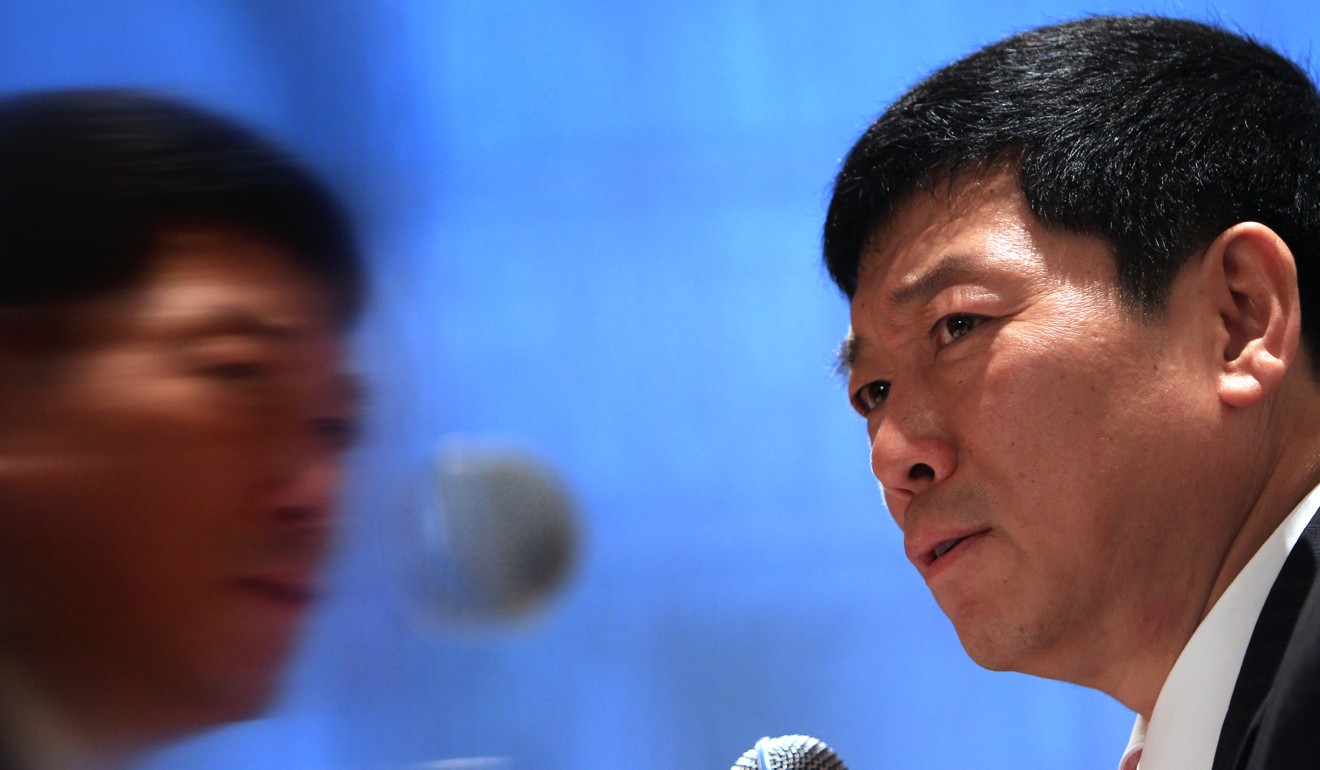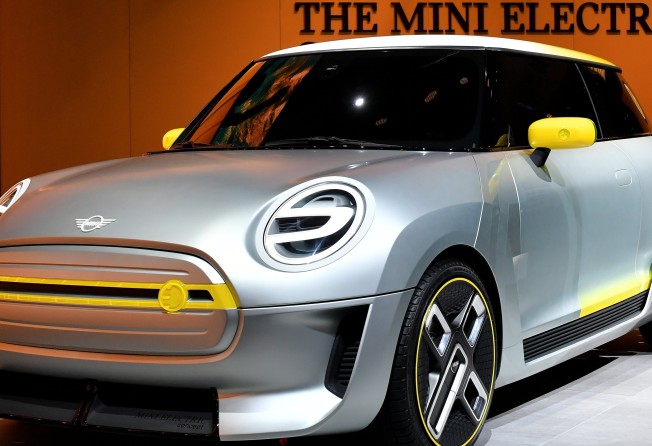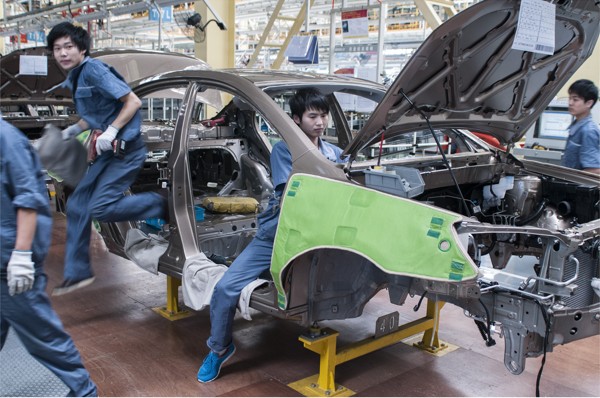
Electric Minis to be built in China, as Great Wall gears up for 1m new-energy vehicle production
Last year, 777,000 new-energy vehicles were sold on the mainland, up 53pc on 2016. Official target is for electric and plug-in hybrids to account for a fifth of all car sales in the country by 2025, some 6-7 million

Great Wall Motors, China’s largest maker of sport utility vehicles (SUVs), expects to being producing a million new-energy vehicles in the country by 2025, including electric Minis, after signing a letter of intent with German premium carmaker BMW.
Wang Fengying, Great Wall’s president, also said the company will also launch its own P8 plug-in hybrid model under the Wey brand by the end of this year, joining an increasingly congested market among global and domestic rivals, as Beijing continues its drive for less polluting vehicles on China’s roads.
The car giant signed a letter of intent last month with BMW, setting the wheels in motion for a partnership between the two firms to produce electric Minis on Chinese assembly lines.
“According to our strategic plan, Great Wall aims to secure a leading position in the new-energy vehicle market over the next three to five years,” Wang told the state-owned Shanghai Securities News. “We are developing innovative, intelligent, connected cars powered by artificial intelligence.”
The Hebei-based SUV maker was reporting annual sales of 1.07 million units for 2017, down 0.4 per cent from a year earlier.
Its currently offers just one new-energy model, the C30 EV, but no sales figures were offered on its production so far.

Wang said the development of new-energy vehicles in China is still at a rudimentary stage despite buoyant sales growth, with government subsidies still playing an important role in helping carmakers woo customers.
Sales of electric cars and plug-in hybrids have been steady growing since 2014 in the world’s largest car market, buoyed by subsidies to encourage their purchase.
Last year, 777,000 new-energy vehicles were sold on the mainland, up 53.3 per cent from 2016, according to the latest figures from the China Association of Automobile Manufacturers.
Beijing is urging car manufacturers to produce more environment-friendly cars, but is still rolling out stringent policy requirements, such as setting quotas, for their sale.
The market recorded 28.9 million total vehicle sales last year, up 3 per cent from 2016, but the official target is for electric cars and plug-in hybrids to account for a fifth of all car sales in the country by 2025, or some 6-7 million new-energy vehicles by then.

“It is still a market worth big investment due to the expected huge sales volumes over the next decade,” said Cui Dongshu, secretary general of the China Passenger Car Association.
“Domestic companies are still actively hunting for advanced foreign technologies to create models that can compete on the global stage.”
Founded by Wei Jianjun, Great Wall launched its new ‘Wey’ brand – named after the chairman – last year, hoping to take on established foreign rivals such as the electric variants of Honda’s CR-V and Toyota’s RAV4.
In August, the company said it was interested in acquiring Fiat Chrysler Automobiles or part of it, showing its ambitions to becoming a worldwide player.
Last month, Zhejiang Geely Holding Group, which owns the Swedish brand Volvo, spent US$9 billion on a 9.7 stake in German carmaker Daimler – the latest sign that mainland car manufacturers are setting their eyes firmly on the world’s premium brands to help upgrade their technologies and build world-class models.